7 “Superfoods” That Aren’t So Super And 9 That Truly Boost Your Health and Energy

The word “superfood” gets tossed around a lot, but not everything with a trendy label lives up to the hype. Some popular picks are overrated, overpriced, or just not as beneficial as they claim to be. On the flip side, there are foods backed by real science that consistently deliver on energy, brainpower, and overall wellness. Here are 7 so-called superfoods that fall short, and 9 that are the real deal.
1. Coconut Oil

Once hailed as a miracle fat, coconut oil has seen its fair share of controversy. It is high in saturated fat, which can raise cholesterol levels and may not be as heart-healthy as once thought. While its tropical allure is undeniable, the health benefits are more myth than fact. Some exotic dishes benefit from a coconut oil base, but moderation is key. Swapping it for olive or avocado oil is often a wiser choice. Coconut oil’s reputation as a superfood doesn’t hold up under scrutiny, making it more of a culinary choice than a health necessity.
2. Goji Berries

Goji berries are often marketed as exotic health boosters, but their nutritional prowess is overstated. Rich in antioxidants, they are not significantly superior to more common berries like blueberries or raspberries. Their tartness adds a unique flavor to dishes, yet they come with a hefty price tag. While they may add color and flair to a meal, their health benefits do not justify the expense. When it comes to boosting health, these berries are more about novelty than necessity. Opt for locally sourced berries to get more value for your money.
3. Agave Syrup

Touted as a healthier alternative to sugar, agave syrup is deceivingly sweet. It is high in fructose, which can spike blood sugar levels and put strain on the liver. Its caramel-like flavor is appealing, yet it’s no miracle sweetener. Despite being marketed as a low-glycemic option, its health impact is questionable. The syrup’s allure is more about marketing than genuine health benefits. Choosing natural sweeteners like honey or maple syrup can be a better option for those seeking healthier alternatives. Agave syrup’s health benefits are largely overstated in dietary circles.
4. Acai Bowls
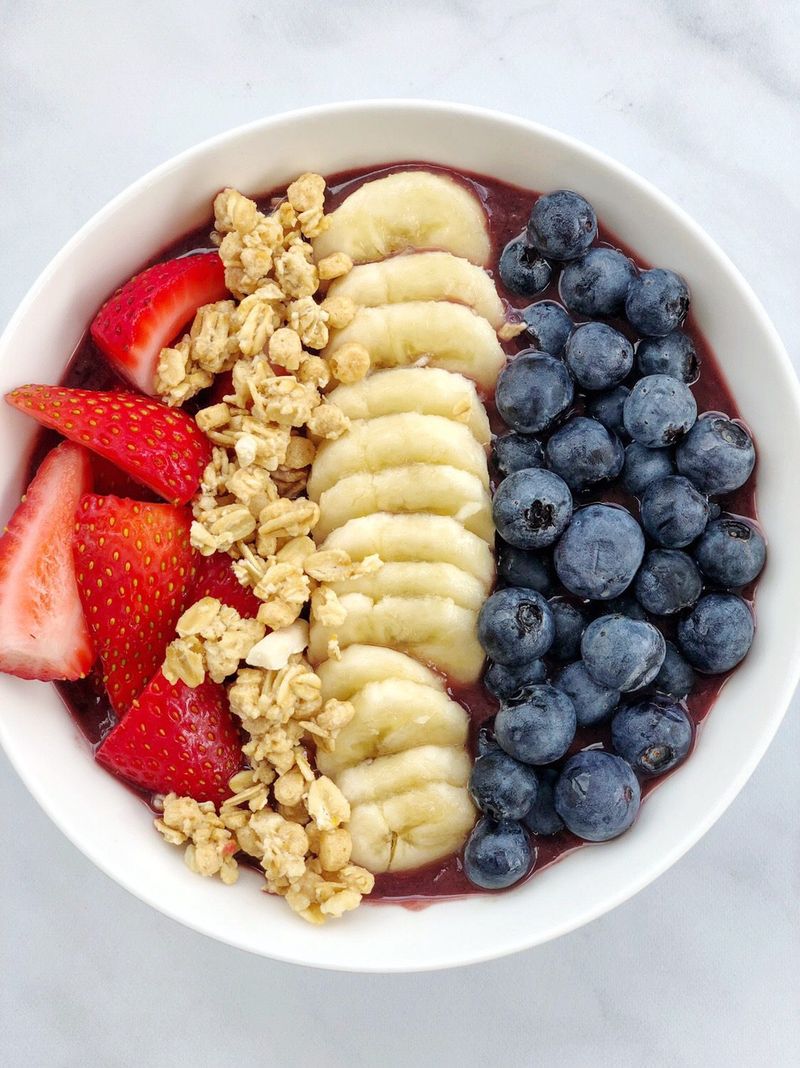
Acai bowls have become the poster child for trendy health foods. However, these bowls often contain more sugar than anticipated. The acai berry itself is nutritious, but when blended with sugary toppings and granola, the health benefits diminish. Many acai bowls found in cafes are loaded with sweeteners, making them more akin to desserts than health food. While they look visually appealing, they’re often not as beneficial as they seem. For a healthier option, it’s best to prepare acai bowls at home, controlling the added sugars and toppings.
5. Gluten-Free Packaged Snacks
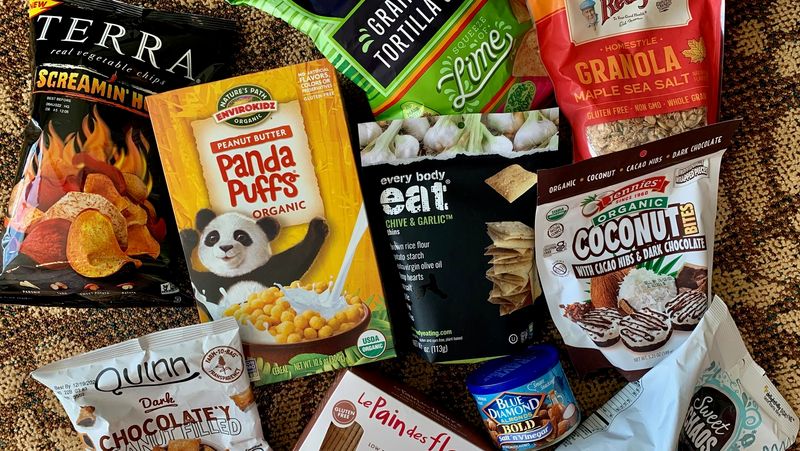
The gluten-free trend has led to an explosion of packaged snacks claiming health benefits. Yet, many of these products are highly processed, packed with refined starches and added sugars. The absence of gluten doesn’t automatically make a product healthy. Often, these snacks compensate for flavor and texture with unhealthy additives. Gluten-free does not equate to guilt-free; it’s crucial to read labels carefully. Whole foods naturally free of gluten, like fruits and vegetables, are better choices. The allure of these snacks is often more about marketing than genuine dietary benefit.
6. Store-Bought Kale Chips
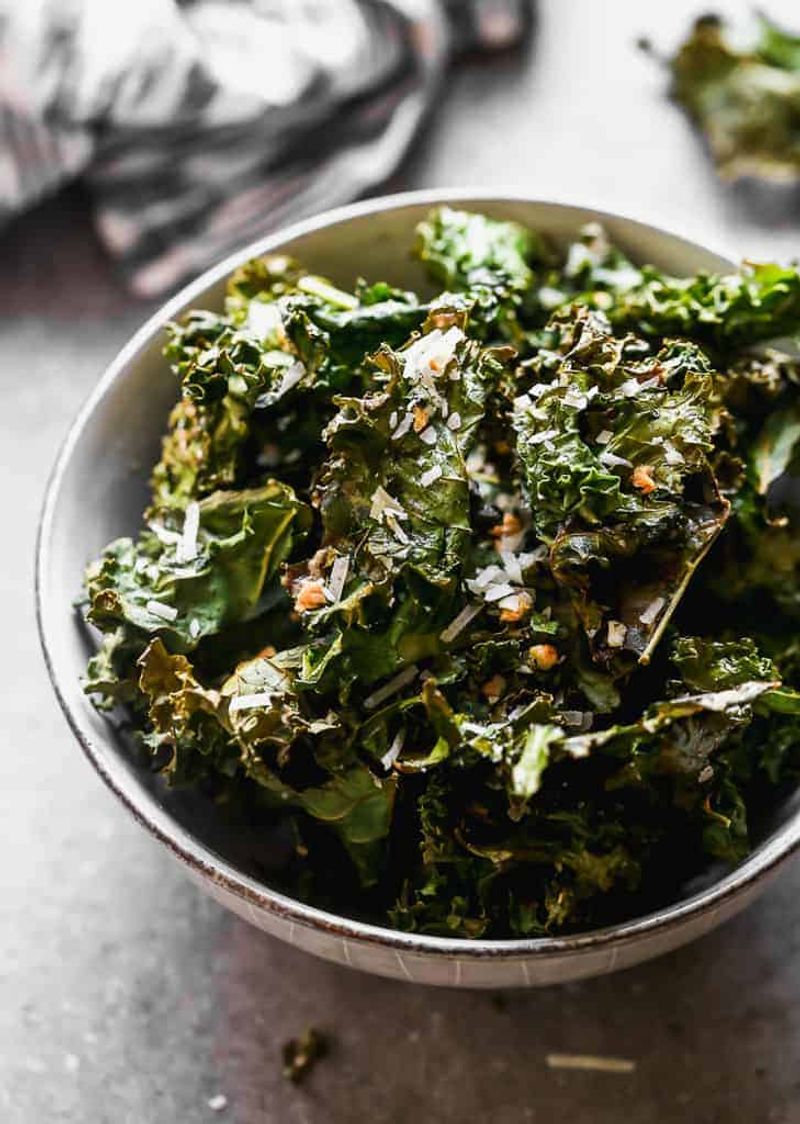
Kale is indeed a nutritional powerhouse, but store-bought kale chips often do not live up to the hype. These chips can lose essential nutrients during processing and are frequently loaded with oil and sodium. They may seem like a convenient health snack, but their nutritional value is diminished by additives. Making kale chips at home can be a healthier alternative, allowing control over the ingredients. While kale remains a superfood, the packaged version requires scrutiny. Opt for fresh kale for salads or homemade chips to maximize health benefits.
7. Bottled Green Juices
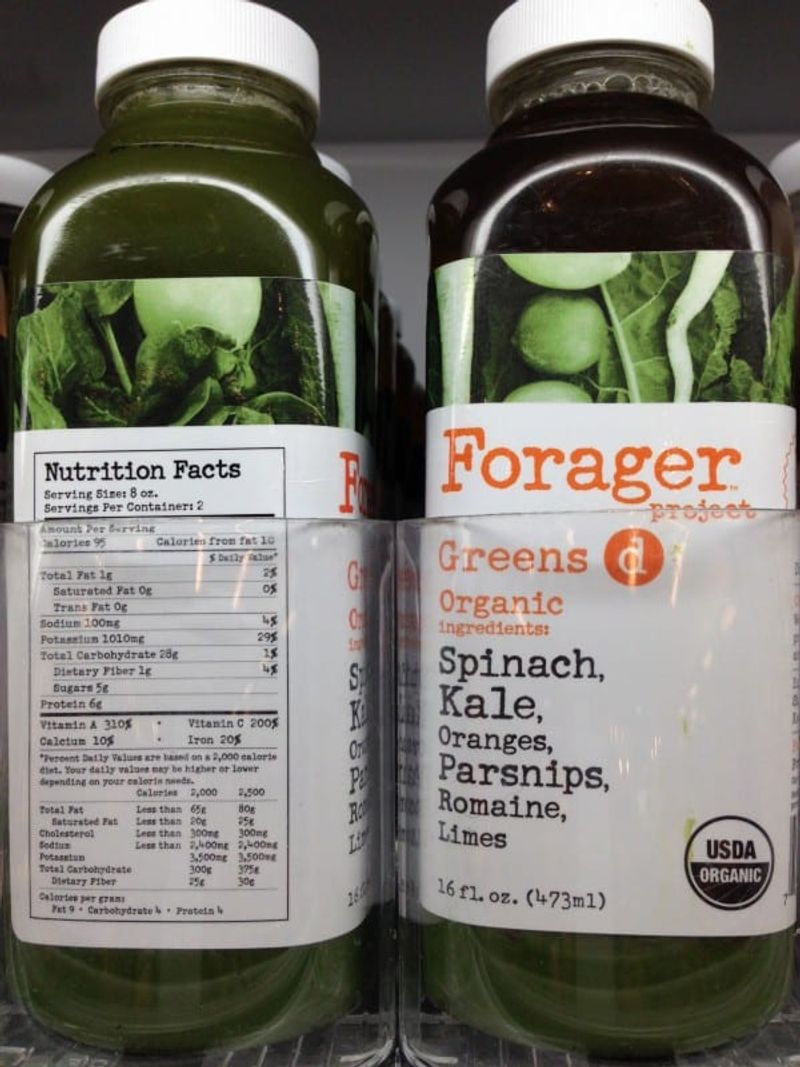
Bottled green juices promise a quick health fix but often fall short. These juices may appear nutritious, yet they often contain high levels of sugar, especially those with apple or pear juice bases. The lack of fiber and the concentration of sugar in these beverages can outweigh any potential benefits. While they are marketed as wellness shortcuts, they may not be as beneficial as whole vegetables. Preparing fresh smoothies at home ensures fiber retention and reduces sugar content. The convenience of bottled juices often comes at a nutritional cost.
8. Blueberries
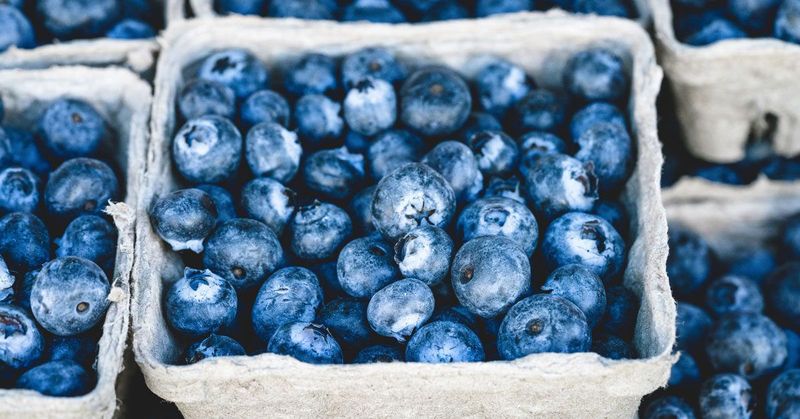
Blueberries are nature’s tiny powerhouse. Bursting with antioxidants, they support memory, skin health, and reduce inflammation. These berries are not only delightful to eat but also pack a nutritional punch. Their deep blue hue comes from anthocyanins, compounds known for their brain-boosting benefits. The sweet-tart flavor makes them versatile in various dishes. Whether fresh, frozen, or in smoothies, blueberries enrich the diet with essential nutrients. Unlike some hyped superfoods, blueberries deliver real, scientifically proven health benefits. Their everyday accessibility makes them a staple in a health-conscious diet.
9. Salmon (and Other Fatty Fish)

Salmon is a star in the realm of superfoods. Rich in omega-3 fatty acids, it supports brain health and reduces inflammation. The succulent, tender texture and rich flavor make it a favorite in many cuisines. Beyond taste, its nutritional profile contributes to heart health and provides high-quality protein. Other fatty fish like mackerel and sardines share similar benefits. Regular consumption of salmon is linked to improved mood and brain function. Its versatility in preparation methods—grilled, baked, or smoked—ensures it fits into diverse dietary preferences. Truly, salmon is a staple for a healthy lifestyle.
10. Spinach (and Leafy Greens)

Spinach is the quintessential leafy green, celebrated for its nutritional density. Packed with iron, magnesium, and folate, it bolsters energy levels and aids digestion. The tender leaves can be enjoyed raw in salads or sautéed for a warm dish. Its vibrant green color is a testament to its richness in chlorophyll and antioxidants. Leafy greens like kale and Swiss chard offer similar benefits, making them dietary staples. Including a variety of greens ensures a balanced intake of vital nutrients. Spinach remains a beloved choice for those seeking energy and vitality in their meals.
11. Chia Seeds
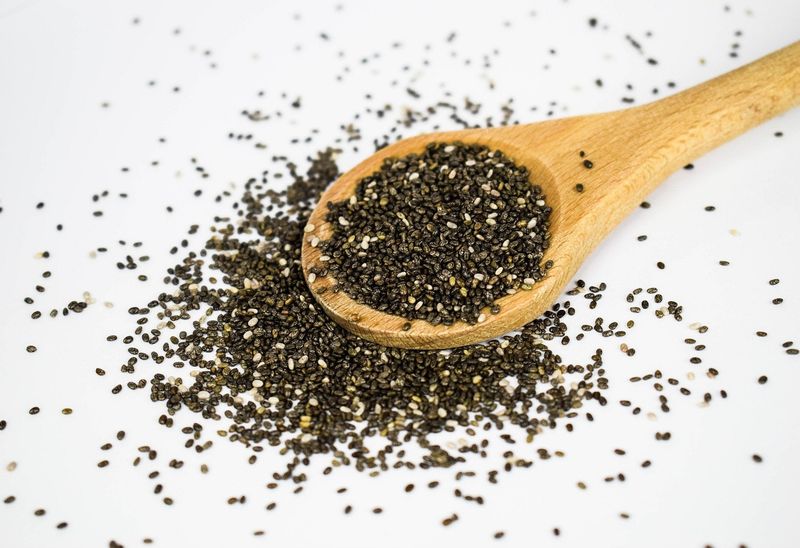
Chia seeds may be small, but their health benefits are substantial. These tiny seeds are a rich source of omega-3 fatty acids, protein, and fiber, promoting satiety and regulating blood sugar. When soaked, they transform into a gel-like texture, making them a versatile ingredient in puddings, smoothies, or as an egg substitute. Their nutty flavor is subtle, allowing them to blend seamlessly into various dishes. As a plant-based source of essential nutrients, they are particularly favored in vegan and vegetarian diets. Chia seeds truly shine in the realm of health-boosting foods.
12. Sweet Potatoes
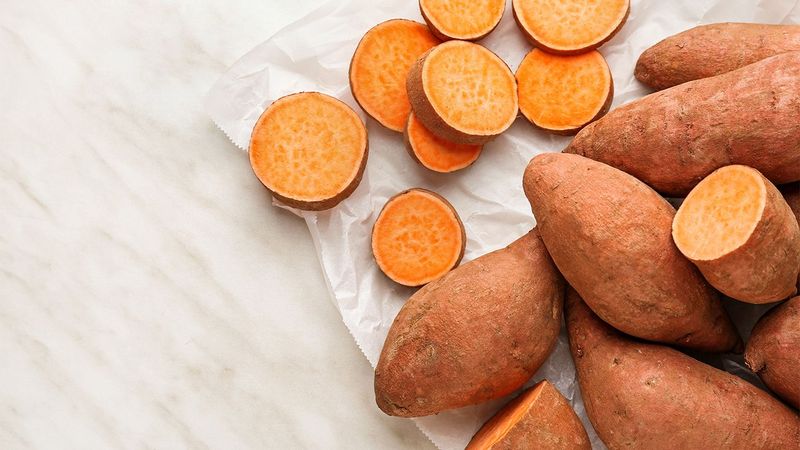
Sweet potatoes are more than just a holiday staple; they are a nutritional powerhouse. Rich in vitamin A, they support vision and immune health. Their natural sweetness complements a variety of dishes, from savory to sweet. The fiber content aids in digestion, while antioxidants promote overall well-being. Unlike white potatoes, sweet potatoes have a lower glycemic index, making them a healthier carb choice. Whether baked, mashed, or roasted, they offer sustained energy without the crash. Sweet potatoes provide a satisfying, nutrient-rich addition to any meal, contributing to a balanced diet.
13. Greek Yogurt
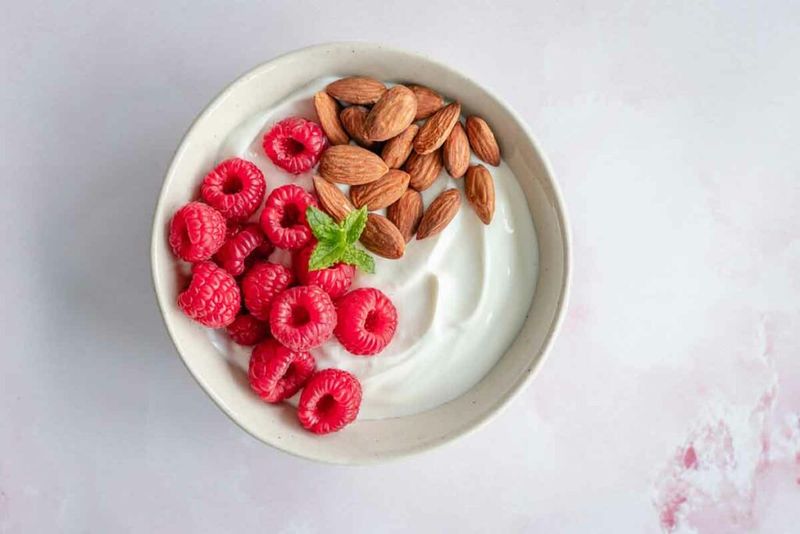
Greek yogurt is celebrated for its creamy texture and rich nutritional profile. Packed with protein and probiotics, it supports muscle repair and gut health. The tangy flavor pairs well with fruits, nuts, or honey, making it a versatile ingredient in both sweet and savory dishes. Unlike regular yogurt, Greek yogurt is strained, reducing sugar levels and increasing protein content. It is a satisfying snack that helps keep cravings in check. With its luxurious texture and health benefits, Greek yogurt remains a popular choice for those seeking a wholesome treat.
14. Lentils

Lentils are an unsung hero in the world of plant-based nutrition. High in protein and fiber, they stabilize blood sugar levels and boost energy naturally. Their earthy flavor and hearty texture make them a staple in soups, salads, and stews. Lentils are also rich in iron and essential minerals, supporting overall vitality. As a cost-effective protein source, they are favored in vegetarian and vegan diets. Their versatility allows for endless culinary creativity, from Indian dals to Mediterranean dishes. Lentils offer a satisfying, nutrient-dense addition to any meal plan.
15. Walnuts

Walnuts are nature’s brain food, rich in plant-based omega-3 fatty acids and antioxidants. Their unique brain-like shape is a nod to their cognitive benefits. These nuts support heart health and improve brain function with regular consumption. Whether enjoyed by the handful or incorporated into baked goods, their crunchy texture and buttery flavor make them a popular snack. Walnuts also offer anti-inflammatory properties, contributing to overall wellness. As a versatile ingredient, they can be used in sweet and savory dishes alike. Walnuts embody the essence of a natural, health-boosting food.
16. Oats (Steel-Cut or Rolled)

Oats are a staple in nutritious diets, known for their heart-healthy benefits. Steel-cut or rolled, they provide a high-fiber, whole grain option for sustained energy. The gentle sweetness of oats pairs perfectly with fresh fruit, nuts, or spices, making them a breakfast favorite. Their soluble fiber, beta-glucan, is key in lowering cholesterol levels and improving heart health. Oats’ versatility extends beyond porridge, as they can be used in baking or savory dishes. This simple grain remains a timeless choice for those seeking nourishment and energy in their daily meals.
